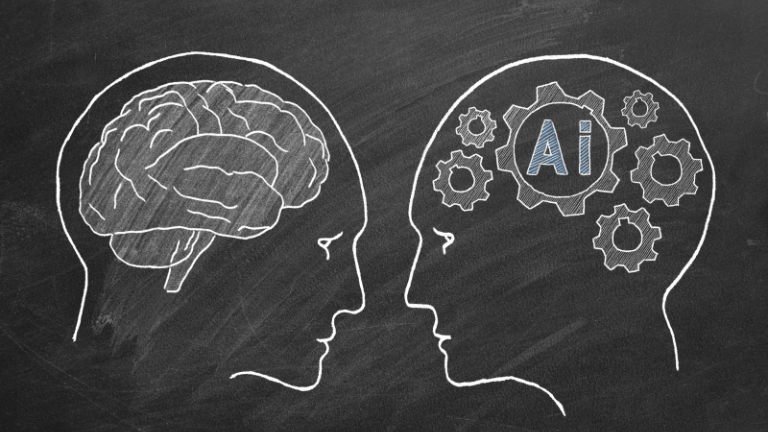Artificial intelligence (AI) is advancing rapidly across many industries, from education to healthcare. It is a matter of curiosity whether artificial intelligence can play an active role in the process of understanding and explaining human emotions and treating mental disorders. Psychologist Res. Asst. Deniz Mısra Gürol stated that artificial intelligence alone will not be sufficient to fill a certain gap for those who do not have access to psychological support.
Questions about the limits of artificial intelligence have been on the agenda lately. Psychologist Res. Asst. Deniz Mısra Gürol from Istanbul Gelişim University (IGU), Faculty of Economics, Administrative and Social Sciences, Department of Psychology answered the question "Does artificial intelligence have the potential to replace human psychologists, psychiatrists and other mental health experts?"
“It can fill the deficiency for those who do not have access to psychological support”
Psychologist Deniz Mısra Gürol stated that Chatbots are software applications that simulate human speech thanks to a series of commands. “Chatbots can act as a virtual therapist by talking to patients, asking them questions about their experiences and feelings. In addition to talking to clients, they can even offer exercise suggestions that they can do. These apps can fill a particular gap for those who do not have access to quality psychological support.”
“Loneliness is a public health crisis”
Res. Asst. Deniz Mısra Gürol stated that many psychotherapists are concerned that their places will be filled by robot therapists. “When the U.S. Surgeon General declared loneliness a public health crisis, he made clear that chatting with a computer could not meet this need. Research also shows that psychotherapy must evaluate each client individually and treatment cannot be reduced to healing using only certain techniques. Apart from treatment techniques, human characteristics such as establishing an empathic bond and developing a therapeutic relationship are the building blocks of successful treatment.”
“Artificial intelligence can provide access to all resources”
There are thousands of resources that psychotherapists use in treatments. “These can often be articles, therapy schools, behavioral exercises and books. Artificial intelligence has the ability to digest all these sources much faster than academics or psychotherapists, and can conduct psychotherapy sessions with clients thanks to the created database."
“Artificial intelligence cannot establish therapeutic alliances”
Psychologist Res. Asst. Deniz Mısra Gürol: “According to research, the secret of successful treatment depends on both specific and general factors. Special factors include specific techniques derived from different theories and applications of psychological science. For example, giving homework based on the target set in therapy. We can say that general factors are related to therapeutic variables. These are bonding, empathetic approach, effective listening and expectations from therapy. General factors are more personal and contain human characteristics that artificial intelligence cannot reach. Studies argue that general factors predominantly determine the effectiveness of treatment. General factors emphasize that the client is unique and is a treatment process in itself, so it is not possible for an automated psychotherapy to work in every case in the long term. A very successful treatment method or a potentially effective intervention such as breathing exercise will not be effective if implemented without a therapeutic bond and trust. A well-trained therapist who listens effectively and can approach empathetically cannot achieve success without creating the right treatment plan and using the right techniques.’’
Trust is at the forefront in a successful therapy process
One of the most important issues in therapy is client confidentiality. In the therapy room, clients can share private issues about themselves with the therapist when they establish a secure bond. Therapists are obliged to work in accordance with the principle of confidentiality, so openly discussing private issues in an online environment may not make the client feel comfortable and safe. Res. Asst. Deniz Mısra Gürol pointed out that there will be a question mark in the minds of the clients as to whether the topics discussed in therapy are permanent in the database. She also added: “Studies have also highlighted that some people may be more shy when talking to a real therapist and more comfortable when talking to a robot. Individuals can make an informed choice when receiving mental health support by observing the strengths and limitations of both artificial intelligence and human therapists.”
 Created Date: : Friday, April 19, 2024
Created Date: : Friday, April 19, 2024
The photography exhibition themed “In the Paw Prints,” organized as part of...
Istanbul Gelisim University (IGU) Software Engineering Department senior st...







